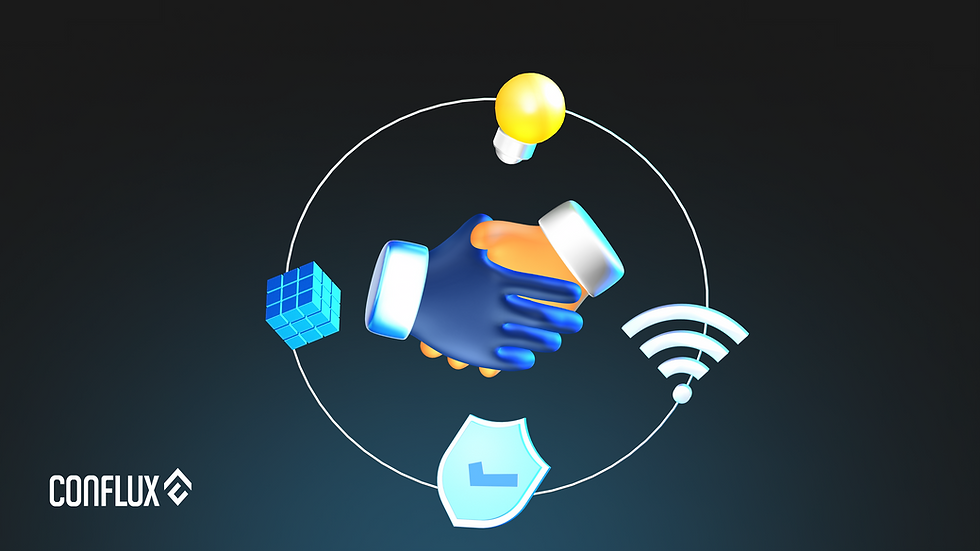Blockchain Security and Privacy: Safeguarding Your Digital Assets
- Conflux Network
- Sep 26, 2023
- 2 min read

In today's digital age, where data is the new gold, safeguarding your digital assets is paramount. Blockchain technology offers an innovative solution for securing transactions and data. In this blog post, we will explore blockchain security and privacy, demystifying these concepts for you. Understanding Blockchain Blockchain is like a digital ledger that records transactions across multiple computers. These transactions are grouped into "blocks" and linked together in a "chain." Transactions are verified by a network of computers (nodes) through complex mathematical algorithms. Once verified, a new block is added to the chain. The data in a block is secure and tamper-proof, making it ideal for various applications beyond cryptocurrencies.
The Security of Blockchain 1. Decentralization: Unlike traditional centralized systems, where a single authority controls data, blockchain is decentralized. This means there's no single point of failure. In Africa, where trust in centralized systems can be a concern, blockchain's decentralized nature enhances security. 2. Cryptography: Blockchain relies on strong cryptographic techniques to secure data. Information is transformed into complex codes that are nearly impossible to crack. This ensures data privacy and protection. 3. Immutable Records: Once a transaction is recorded on the blockchain, it's extremely difficult to alter or delete. This immutability safeguards against fraud and tampering. 4. Consensus Mechanisms: To add a new block, nodes in the network must reach a consensus. This makes it challenging for malicious actors to manipulate the system.
Privacy on the Blockchain While blockchain ensures transparency, it also provides privacy through these mechanisms:
1. Public and Private Keys: Users are assigned unique cryptographic keys - a public key (for identification) and a private key (for access). Protect your private key like your most valuable possession. 2. Pseudonymity: Transactions are recorded using wallet addresses, not personal information. This offers a level of anonymity while maintaining transparency.
3. Zero-Knowledge Proofs: This advanced technique allows one party to prove to another that they know a specific piece of information without revealing the actual data. This is particularly useful for privacy-focused applications.
Challenges and Responsibility Blockchain technology is robust, but it's not foolproof. It's crucial to remain vigilant:
1. Phishing Attacks: Be cautious of fraudulent websites and phishing attempts that may trick you into revealing your private keys. 2. Wallet Security: Ensure you use a reputable wallet and keep your private keys safe, offline, or in secure hardware wallets. 3. Smart Contract Vulnerabilities: When using blockchain for contracts, be aware of potential bugs or vulnerabilities in smart contracts. 4. Regular Updates: Stay updated with the latest developments in blockchain security and privacy. Technology evolves rapidly, and being informed is your best defense.
Blockchain technology has the potential to transform various industries in Africa, from finance to supply chain management and beyond. By understanding its security and privacy features, you can harness the benefits while safeguarding your digital assets.



Comments